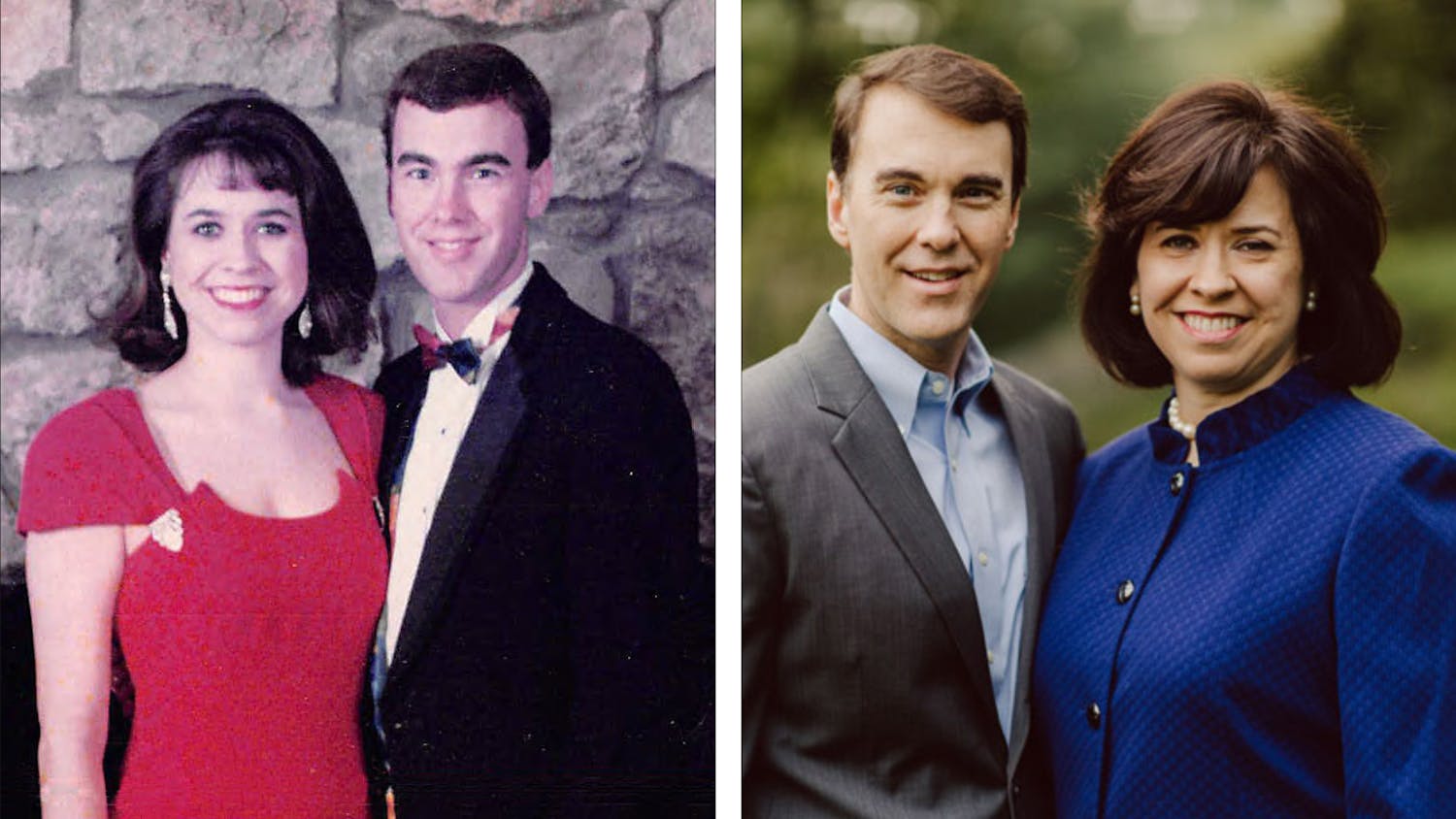This Cellar Door is all about “Dune.”
From the original novel, the 1984 film and the 2021 film adaptation, the world of “Dune” has been heavily excavated.
Published in August of 1965, Frank Herbert gave the world a universe so intricately detailed and immersive that changed science fiction for the better.
Inspiring other works like “Star Wars” and “Game of Thrones,” “Dune” paved the way for many fantastical favorites that continue to inspire and impact literature and film.
I won’t lie. I had never heard of “Dune” until I found out Timothée Chalamet was going to be in a film adaptation of the novel, and I have a mantra that I will always watch a Timothée Chalamet movie.
Originally scheduled to release on Nov. 20, 2020, I started reading the book the summer of 2020. Then, the film was pushed back to release Dec. 18, 2020, and then once more to Oct. 1, 2021.
So, I had a lot of time to finish the book.
Herbert poured his heart and soul into his novel and while sand might not seem like the most interesting thing to some people, to Herbert it was captivating.
In 1959, Herbert was researching a story about the U.S. Department of Agriculture and their studies to stabilize shifting sands. This research led him to the thought of creating a livable environment in a harsh desert area. Was it possible?
He decided to write a novel where it was.
Going further than just sand dunes, Herbert began to invest in the study of desert cultures and the entirety of desert landscapes. He wrote two short novels in the Analog Science Fiction & Fact magazine but then decided to combine the two in order to make a single and unified work of art.
And yet, it was rejected by over 20 publishing houses when he first attempted to release it. Finally, Chilton Books took a chance on Herbert, recognizing the talent and intricacy of his work. The book went on to win the highest awards for science fiction, the Nebula and Hugo awards.
As time has gone on, the book has only received more praise.
Separated into three parts, Herbert pours into each character that he creates in a way that cultivates a bond between the reader and the character.
It’s for this reason that after completing the book, I wish I hadn’t, and that the story could keep going on. The main players in the story feel as though they are real.
The book was first adapted into a film in 1984, directed by David Lynch and starring Kyle MacLachlan as Paul Atreides, the novel’s main protagonist. However, the film was immediately hated by most of those who saw it.
Compared to the first “Star Wars” movie which came out in 1977, “Dune” was judged for being harder to understand and having a plot that seemed to require already knowing the storyline before going in. With a $40 million budget, the 1984 film only received $30.9 million in the box-office.
And after this, the story of “Dune” seemed to be forgotten. But, with the main aspects of the story dealing with environmental stress, human potential and developing countries fighting for their freedom, the story of “Dune” remains a tale that can remain applicable through generations.
Which is why, after 37 years, Denis Villeneuve decided to bring “Dune” back to life.
While the wait was long, it was worth it. No one can say that Villeneuve's rendition of “Dune” lacks beauty. It’s quite possibly one of the most visually beautiful movies I have seen in a long time. With wide landscapes and sifting sand in a majority of the shots, Villeneuve navigates the desert with ease.
However, similar to the original adaptation, if you were expecting a film in which you would be able to sit back and mindlessly follow along with the story, you might be disappointed. While its runtime of 155 minutes seems like it could express a lot of subject matter without being too dense, it barely covers a third of the novel, meaning there will probably be at least two film sequels to come.
Each minute of this film is packed with history and characterization. Don’t look away for too long, or you might miss a flashing dream or the Baron Harkonnen floating by the ceiling.
Bathroom breaks are not encouraged when seeing this on the big screen.
One aspect of the film that I heard complaints about was the lack of screentime for Zendaya. She was obviously a huge pull for people to come see the movie in theaters and while I do agree that Zendaya seemed to appear in the trailers more often than she did in the actual movie, I don’t think it’s a huge issue.
Zendaya plays Chani, a Fremen woman who lives on the planet Arrakis, where Paul’s family moves. She doesn’t appear in the novel until much later in the storyline, and since this film is only a portrayal of the first third of the book, I think this is fine.
While they capitalized on Zendaya in the trailers, her character is still incredibly important and it is crucial to show Chani as a part of the teasers and in the film because of her significance in the story, which viewers who have not read the book will understand in the sequels to come.
But as much as I loved this movie, I think any film adaptation of “Dune” must be presented with the novel alongside it.
If I had not read the book prior to seeing the new film, I wouldn’t have had such a strong connection to the characters and I wouldn’t have felt as much when a character died or was introduced for the first time.
I found myself less connected with the characters (besides Chalamet of course, I always feel connected to him), than I was when I read the book.
Some scenes read more suspenseful or significant than they might have appeared on screen, giving more depth and importance to the scenes.
However, I’ll allow these small faults because these kinds of connections and significance are of the sort that can only be truly shared in the beauty of written language. It’s difficult to translate the thoughts of a character written in a novel to a visual depiction where you are not constantly in the mind of the protagonist.
The entire universe Herbert has created with “Dune” and the way it has constantly inspired and reshaped film and literature is incredible. It’s insane to think how one person can be so creative.
For this reason, I give the full “Dune” universe five stars. For any individuals interested in a more in-depth review of the newest film, check out Lucas Bertsche’s review.




